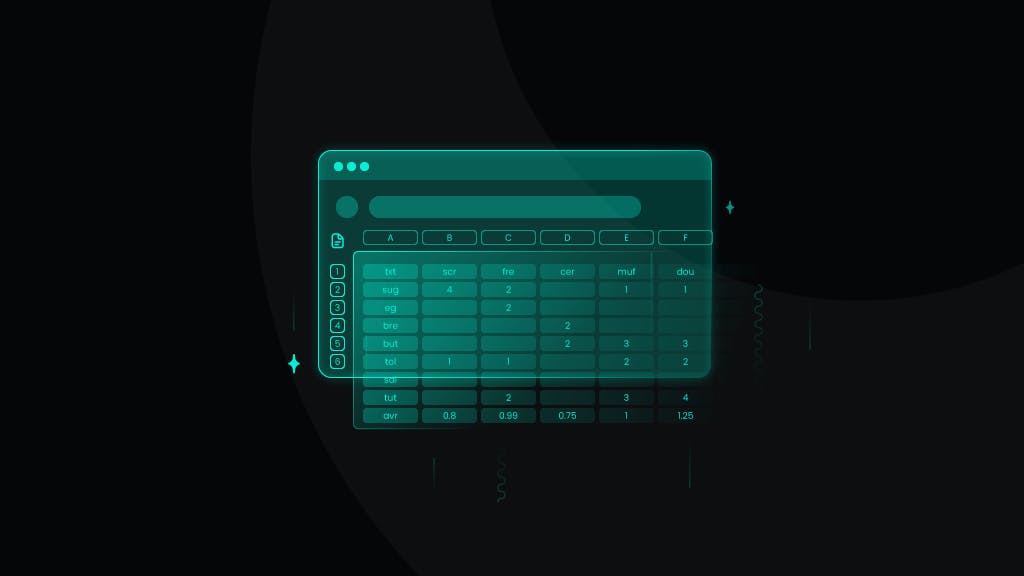- Smartproxy >
- Proxies >
Mobile proxies
Mobile Proxies with Global Coverage Now up to 70% Off
Leave restrictions behind with IPs around the globe and the highest level of compatibility with all popular coding languages.
What are mobile proxies?
Mobile proxies route traffic through mobile IPs while acting as an intermediary between the user and the target. From accessing region-specific content to collecting valuable web data, mobile proxies are the synonym for reliability.
Advanced targeting
Filter 10M+ mobile IPs with 700+ ASNs, choose an OS, iOS or Android, and access data globally with 160+ worldwide locations.
Maximum compatibility
Integrate mobile proxies into your working environment using any popular programming language and take advantage of a user-friendly API.
Highest success rates
Bypass CAPTCHAs and IP bans without navigating through a complex infrastructure. Pair superior reputation mobile proxies with a free X Browser.
Flexible plans for any demand
Truly the best entry point in the market and plans that suit your needs.
With each plan you access
10M+ ethically-sourced IPs
OS filtering by iOS & Android
160+ locations & 700+ mobile carrier providers
HTTP(S) & SOCKS5
Unlimited concurrent requests
3G/4G/5G mobile proxies
24/7 tech support
City-level targeting
SSL Secure Payment
Your information is protected by 256-bit SSL
Covering all top mobile proxy locations
Geo-restricted content and bans are things of the past. Travel virtually and get an American, European, or Asian IP with 99.99% uptime from our pool of 160+ locations.
Ease of use with any setup
No matter the programming language, mobile proxies ensure a smooth connection to other tools in your business suite.
package mainimport ("log""net/http""net/url")func main() {if err != nil {log.Fatalln(err)}client := &http.Client{Transport: &http.Transport{Proxy: http.ProxyURL(proxyUrl)},}req, err := http.NewRequest("GET", "https://ip.smartproxy.com/json", nil)if err != nil {log.Println(err)}res, err := client.Do(req)log.Println(res)if err != nil {log.Println(err)}}
Discover why users love Smartproxy
Over 1K reviews on Trustpilot – trusted by 50K+ clients and industry experts
Featured in:
Configurations & integrations
Learn how to set up your mobile proxies by exploring our integration guides. Easily plug in Smartproxy solutions with the most popular third-party software.
Complimentary tools to sharpen your proxies
Enhance your proxying experience with our unique infrastructure. Create multiple browser profiles and manage your proxies directly in the browser without a single hassle.
X Browser
Easily juggle multiple profiles without lifting a finger. Our X Browser will create unique fingerprints and do all the heavy lifting for you.
Chrome Proxy Extension
Easy-to-use, damn powerful. A proxy wonderland in your browser, accessible in 2 clicks. Free of charge.
Firefox Add-on
Simple to set up, even easier to use. The virtual world at your fingertips in 2 clicks with this freebie.
Most popular use cases
Web scraping
Elevate your business by harnessing valuable web data extracted from even the most advanced targets. Stay informed and make data-driven decisions.
Multi-accounting
Create and manage multiple accounts on various platforms. Grow your online presence without experiencing CAPTCHAs or IP blocks.
App development & testing
Test apps and websites across different devices, OS, and locations to ensure the best user experience and highest conversion rates.
Explore our other products
Discover the Smartproxy infrastructure and find a perfect proxy match for your use case.
Residential proxies
Our residential proxies network is perfect for overcoming geo-restrictions, CAPTCHAs, and IP blocks. We provide ethically-sourced IPs with expansive pools, extensive location coverage, advanced targeting, a high success rate, and complete subscription flexibility.
55M+ IPs
195+ locations
HTTP(s) + SOCKS5
Each residential IP is a real desktop device with a specific physical location. Our residential proxies are the fastest in the market, 99.47% successful, and versatile for any use case. Available with a monthly subscription plan or the usage-based Pay As You Go option.
Learn moreRotating on-demand IPs
Forever website sessions
Unlimited threads
Get the best of both residential and datacenter proxies worlds. Enjoy 99.99% uptime, blazing speeds, and stability by equipping ISP proxies. Scrape advanced targets, power up your social media marketing, and tame all AdTech tasks while avoiding IP bans and CAPTCHAs.
Learn more10M+ IPs
700+ ASNs and city-level targeting
HTTP(s) + SOCKS5
Our 3G, 4G, and 5G mobile proxies come from mobile devices connected to mobile carriers. They’re exceptional for their high success rate, security, and advanced targeting options. Choose between iOS and Android operating systems using the OS filtering feature. Select the plan that best fits your needs, or opt for Pay As You Go and pay per GB.
Learn more
Fastest time-to-value with our dashboard
Hop on and use our user-friendly dashboard whenever and however you need. A straightforward way to generate endpoints, track usage, and assign team roles.
Loading video...
Smartproxy blog
Build knowledge on mobile proxies, or pick up some dope ideas for your next project – our blog is just the perfect place.
Most recent
Most popular

What Is the Difference Between Residential and Datacenter Proxies?
Vilius Sakutis
Dec 19, 2023
7 min. read

Google Sheets Web Scraping: An Ultimate Guide for 2024
Martin Ganchev
Jan 26, 2024
6 min. read

Top 10 Best Residential Proxy Service Providers (2024)
Mariam Nakani
Jan 01, 2024
5 min. read

What Is a Backconnect Proxy? A Complete Guide in 2024
James Keenan
May 04, 2023
6 min. read
Frequently asked questions
How do mobile proxies work?
Mobile proxies work by routing internet user’s traffic through mobile IPs, acting as intermediaries between users and their target websites.
What is a mobile proxy?
A mobile proxy is an intermediary server that forwards your connection requests to a target website and returns your public data. Mobile IP addresses come from real mobile devices connected to any mobile carrier, such as Comcast, T-Mobile, or Sprint, and run on mobile networks.
What are mobile proxies used for?
3G/4G/5G mobile proxies help with a range of use cases. Loved by users for their stability and ability to stay undetected even by most advanced anti-proxy software, they can work wonders when users need to bypass geo-restrictions, run automation tools or manage multiple social media accounts.
What is a 4G mobile proxy?
A 4G mobile proxy server routes internet traffic through a mobile connection using 4G cellular technology.
Do you offer USA mobile proxies?
Yes! Smartproxy offers a large 3G/4G/5G mobile proxy pool in the US and other 160+ locations with city-level targeting.
What is the difference between mobile and residential proxies?
Mobile proxies work by routing your traffic through 3G/4G/5G cellular networks, which gives the impression that the user is accessing the target directly from the mobile device. Residential proxies take a different approach as they use local network connections to create a proxy IP address.




%20(1).png?ixlib=gatsbyFP&auto=compress%2Cformat&fit=max&rect=0%2C0%2C2000%2C2000&w=95&h=95)